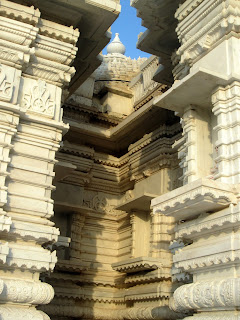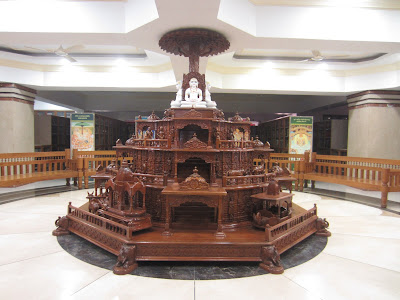I was 5, when i visited Varanasi. During our visit was curfew at night, I still remember we cousins peeping out of our hotel windows to check out what was going on. There was dead silence, with gunned men roaming here and there. My memories with this place was cherished by this guest post Varanasi Vibgyors by Glad2baWoman.
Glad2bawoman is an online media company for women with over 77,000 members. The articles on their site encompass various topics around Health, Empowerment, Relationships, Fashion and Leisure. Over to team Glad2baWoman,
India is a country
known for its diversity in any possible field, be that religion, economic
stature, culture, social progress, education, business, profession and what
not. It has been a major attraction to tourists from all over the world who
visit the country to experience every other stratum of society and
civilization. It’s a major landmark in the tourist circuit, known for its
ethnicity, heritage and culture. However, when it comes to experiencing India,
its background, its cultural heritage, all packed up in a region as small as a
city, one could never deny that the city of Varanasi is unrivalled.
Known as the one of
the oldest continually inhabited cities of the world, Varanasi promises its
visitors the most sumptuous treat of cultural heritage and diversity that India
has got to offer. Located in the most populated region of India and having the
topography of a typical river basin, Varanasi is very well accessible by all
sorts of transport, be it air, railways or roads. Housing every developmental
stage of social as well as religious progress, it is sure to offer a timeline
of the civilization of the east starting from what it was to what it is. Being
an important stop on the Hindu religious circuit, it’s attractive to tourists
and pilgrims alike. It also lodges the Benaras Hindu University, one of the
largest and oldest universities of Asia.
 |
| Photo Courtesy Wikipedia: Varanasi |
The city of Varanasi,
which lies on the right bank of the holy Ganges, can be reached easily from any
part of the country. It has trains continuously plying from each of the four
metro cities of India and has the Lal Bahadur Shastri airport for transport by
flight. It also lies on the Kolkata-Delhi national highway 2, one of the four-laned
expressways which form the Golden Quadrilateral. The best time of visiting the city
would be from November to March, since temperatures might soar up past 40
degree Centigrade during the summer. Also, this period sees most of the traditional
fairs and festivals hosted by the city.
Varanasi has two
distinct parts. One is the old city, popularly known as Kashi, the oldest known
centre of civilization in the Hindu mythology dotted with temples, narrow lanes
and bounded by the famous ghats along the river on the east, which are of
immense religious as well as historical importance. This part of the city is
home to many a saint who have renounced worldliness to live a life driven by
faith, austerity and in service to Hinduism. This part of the city has chosen
not to indulge in the pursuit of modernization and has preserved its ethnicity.
While the other part of the city has expanded to keep up with the pace of
development, full of luxurious hotels, restaurants, flyovers and business
centres.
For any tourist on a
visit to the city, it is advisable to book an accommodation in advance to save
the trouble of searching for one followed by a tiring journey. However, with
hotels in plenty, one should never worry about being able to get a vacant one on
the spot. One might choose from among a range of the less priced hotels along
the congested ghats in Kashi to a plush 5 star hotel in the posh areas of
Varanasi a few kilometers away from the ghats. A stay of around 4 days is adequate for covering the entire
city and sight-seeing.
The first dawn in the
city may be spent on one of the 84 ghats that line the eastern end of the city.
The Dasaswamedha Ghat is the most visited one followed by the Raj Ghat and the
Assi Ghat. A stroll on the Dasaswamedha Ghat in the early dawn would promise a
spectacular view of the sun rising over the Ganges. The ghat is used by
pilgrims, saints and worshippers to offer their morning prayers and you should
not be surprised to spot swarms of photographers clicking away to capture the
moments. You can also hire a canoe or a boat to have a wider view of the ghats
which appear quite colorful with the diversity of activities they witness.
After the sunrise, you can head for the famous Kashi Vishwanatha temple, which
is an exalted place of pilgrimage and an idealize centre of faith. Legends from
the Hindu mythology attach immense importance to the temple of Kashi. The
approach to the temple through the narrowest of lanes lined with busy shops is
quite intriguing. Offering prayers at the temple might take some time due to a
large number of pilgrims and it’s advisable to have lunch once you are done
with it. The afternoon can be spent in leisure or exploring the lanes of the
old city of Kashi which have numerous shrines and lingams tucked into every
corner buzzing with the activity of pilgrims, pandas and stalls selling
offerings to the faithful. Every evening the Dasaswamedha ghat lights up in
lamps in the aarti, a grand ritual which should never be missed.
 |
| Photo courtesy Wikipedia: Dashashwamedha Ghat on the Ganga, Varanasi |
One may enjoy the ritual
either from the ghat or from any of the numerous boats which remain stationary,
touching and facing the ghats and serving as a gallery for the tourists. The
following day might be spent in sight seeing in and around the city. One may
book a cab for the day and start with Chunar fort dating back to 1540AD which
has been the scene of many a battle. After Chunar, head for the Vindhyachal
temples around 45 kms from Chunar. One can also pay a visit to the rock
paintings at Mirzapur. The day’s trip should end at Varanasi by the evening.
Varanasi is also a favourable shopping destination famous for its Benarasi Silk
sarees. An evening in Varanasi may be spent shopping in any of the brightly lit
shopping arcades or by tasting the famous sweetmeats of the city with rabdi
being the most exquisite of all. The next day, take a cab to Sarnath, 15kms
away lying in the Buddhist circuit. The major attractions are Ashoka’s Pillars,
the Dharma stupa and the ruins of Mulagandhakuti. From here, move on to the
Chandraprabha wildlife sanctuary. This is a quiet and pious picnic spot lodged in a hilly
terrain and adding the famous Rajdari and Deodari falls to one’s pleasure. This
lies at a distance of 65kms from Sarnath, and should conclude the day’s trip.
The evening in the city may be spent in leisure, at any of the ghats which
become quiet and peaceful after the hosting the daily cycle of business.
Hopping from one ghat to another each of which house its typical mystique
environment would be quite worthwhile. Other attractions include the fort of
Ramnagar on the ghats of the river Ganges, the Benaras Hindu University and the
Jantar Mantar or the sun clock.
A visit to this
ancient city which has been a witness to the birth and development of human
civilization is sure to intrigue any visitor. It’s perhaps the only part of the
country if not the world where the past and the present, eternity and
continuity co-exist without interfering with one another. It’s sure to take you
on a ride through the historical timeline and is equally worthwhile for
pilgrims and tourists.














































1.jpg)
2.jpg)

